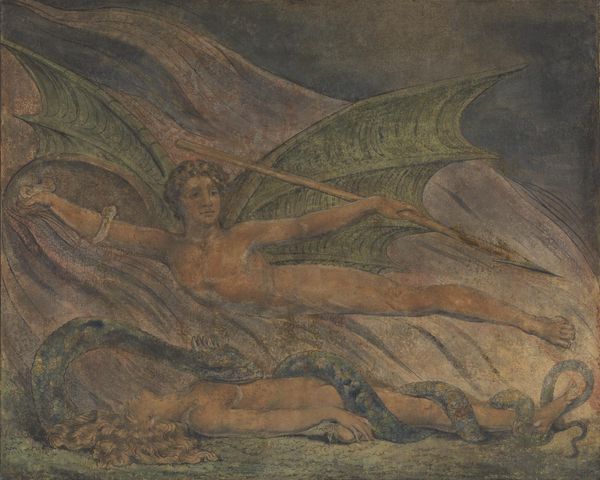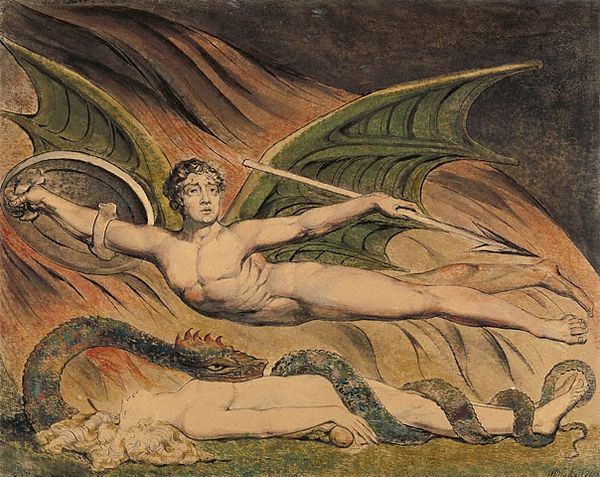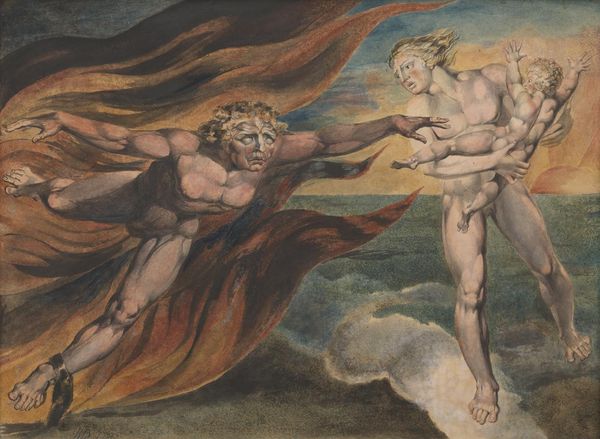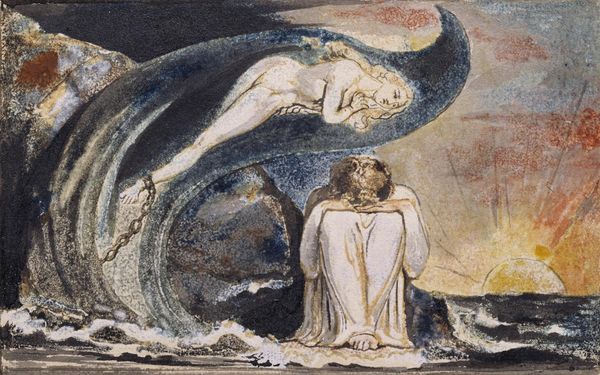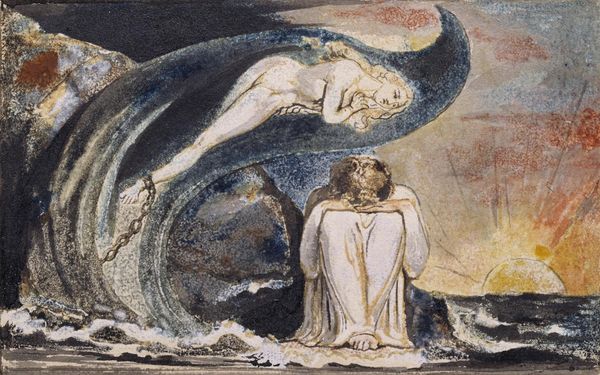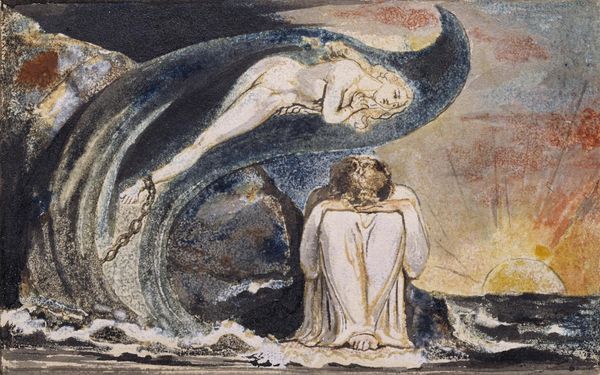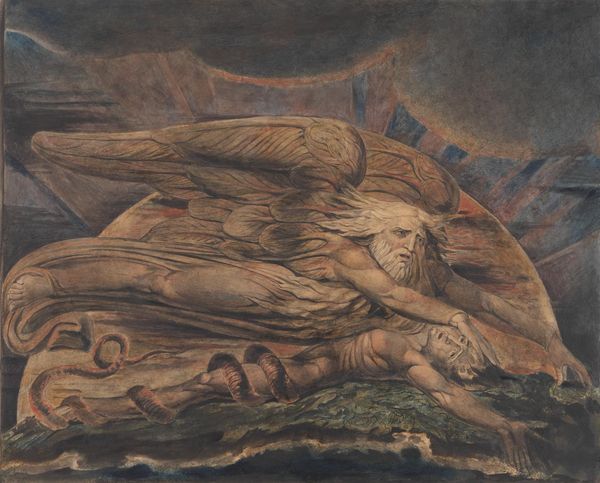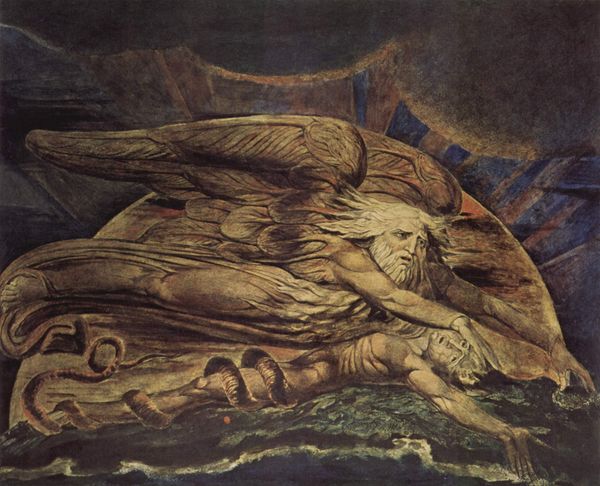
Dimensions: unconfirmed: 432 x 534 mm
Copyright: NaN
Editor: This is William Blake’s “Satan Exulting over Eve.” It’s undated, but from what I understand, it's part of a series of illustrations for Milton’s *Paradise Lost*. It's a watercolor. The scene feels both powerful and tragic. What strikes you most about this depiction? Curator: Well, it's impossible to ignore the charged relationship between power, gender, and transgression depicted here. Blake, steeped in the radical ideas of his time, offers a complex view of the Fall. Consider Eve's vulnerability versus the triumphant yet ambiguous figure of Satan. Is he truly exulting, or is there a hint of something else in his expression? Editor: Something else? Like what? Curator: Perhaps a critique of patriarchal structures that demonize female agency. Blake was deeply critical of societal constraints. This image invites us to question who the real prisoner is, and the systems that perpetuate this narrative. I find it fascinating. Editor: I see what you mean. It adds another layer to the story.
Comments
tate 9 months ago
⋮
http://www.tate.org.uk/art/artworks/blake-satan-exulting-over-eve-t07213
Join the conversation
Join millions of artists and users on Artera today and experience the ultimate creative platform.
tate 9 months ago
⋮
Blake’s Satan bears none of the marks of depravity or bestiality that one might expect. Many 18th-century artists were heavily influenced by Milton’s Paradise Lost in which Satan appears as a sublimely heroic figure. In Blake’s picture, Satan’s evil nature may be seen to be distilled in the form of the snake. Lavater derived his reading of this creature from conventional Christian philosophy, but based his description on the paradoxical notion of the snake’s lack of form. ‘What has less, yet more physiognomy, than the serpent?’, he asks. ‘Can we not perceive in it tokens of cunning and treachery?’ Gallery label, March 2011
